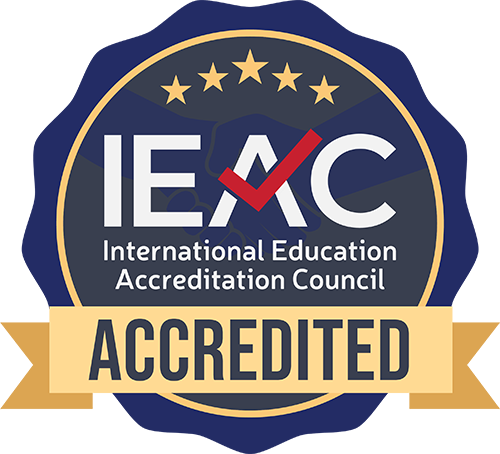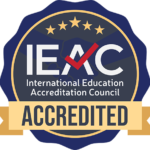Master of Arts (MA) in Practical Theology and Biblical Leadership
Introduction
- Do you love God, His Church, His Word and His People?
- Do you want to be a Better, Stronger Leader with a Solid Biblical Foundation?
- Do you want to stand firm and fearless in Biblical History and Authority?
Open the Word, fasten your seatbelt, and dive into the Un-Apologetics’ Apologetics of the Warnborough MA in Practical Theology and Biblical Leadership!
The Warnborough College MA program in Practical Theology is unique and delivered completely online. It is designed to enhance Modern Church Leaders with a deeper look into God’s heart for His Church while meeting the needs of a postmodern leader or scholar looking for new paradigms.
You will not only grow in your knowledge and strength, you will learn techniques and a system to bring that to others in a pragmatic way – in other words, Practical Theology and Biblical Leadership.
Key Info
Duration:
4 terms (16 months) minimum ^
Credits:
120 ECTS credits
Fees:
€85 per credit. €10,200 in total.
Start:
Monthly
Prerequisites:
Undergraduate degree in the same or related discipline

Candidates who are keen to learn and apply knowledge to real-life Biblical practice in any number of leadership roles should consider this program. For example: Modern Church Leaders seeking more, but perhaps too committed to their church or family to pack up and move to a distant university; Leaders that want to dive deeper into the Word and understand their purpose more fully; Pastors and Bible Teachers and Scholars that want to grow closer to the heart of God and be armed to bring such depth to others, while maintaining their lives and missions intact.
If you have a deep desire or calling to pursue a Masters with a focus within Theology but outside of leadership be sure to contact the Program Director to discuss options. Candidates will be expected to work independently and aggressively to identify and secure an understanding of the issues that seem most meaningful, the challenge of which will have the potential to stimulate the candidate to contribute to new knowledge in the discipline. There is academic progression on to a PhD in Practical Theology.
Students may be exempt from certain modules in the curriculum, based on prior courses taken, and/or demonstrated knowledge of philosophy and related disciplines. Modules taken at any time during the student’s career may be counted, if they fulfil appropriate requirements.
Because of the enormous flexibility of the WCI program, students may work with their mentor to structure their program in the context of their individual interests, and professional and academic goals. Read the complete module descriptions for information as well as ideas – think of them as a set of guidelines, rather than rules. They will also give you ideas on areas you may wish to pursue most aggressively, in your graduate program.
120 ECTS credits, including a Master’s Thesis, will be required for the MA degree. In accordance with Warnborough College regulations, MA candidates in Practical Theology and Biblical Leadership will need to fulfil the following requirements:
6 compulsory modules: 48 ETCS credits (8 ECTS credits each)
- Introduction to Biblical Leadership
- Apologetics and Biblical Continuity
- Leadership Lessons from the Epistles of Paul
- The Churches of Revelation and Ephesus as a Central Church Model
- The Modern Paladin System
- Developing a Personal and Effective Thesis
Thesis: 72 ETCS credits (approximately 30,000 words or 100 pages)
For Practical Theology, students must choose a subject of Theology as it applies to the real world. A practical approach to Biblical leadership typically entails studying a book or section of the Bible, or weaving a theme throughout the text. Some examples would include:
- God’s Heart for Leaders expressed within the Book of Acts.
- The evolution of Biblical Leadership Theory from Old to New Testament.
- Peter as a model for leadership through Redemption.
- Paul’s lessons to Timothy, Titus, and Philemon.
- The Teachings of Jesus on the Church.
- A Study of Women Leaders within the Bible.
There are literally thousands of possible subjects and examples, and a student should develop those ideas as they apply to their particular mission and role within the church.
The Thesis should be composed in academic and research paper style (MLA preferred, but footnote accepted), with ample sources and textual quotes. Word count should be between 30,000 to 40,000 words.
Students work independently, with the guidance of an allocated mentor, interacting when necessary with groups conducting learning via our Online Moodle. After the six modules are completed, students spend about 9 to 10 months writing their thesis which can be tailored to their specific needs but must be within the discipline of Practical Theology. This program is academically-rigorous and focused, with pragmatic real-world goals.
Victor W. Matthews, PhD, is a third-generation pastor, multiple company founder, Bible teacher and church leader who lives in the Rocky Mountains of Colorado. His grandfathers on both sides were church planters and pastors - he attended his first revival at the age of seven, and he led his first mission trip at seventeen, over 30 years ago. A born leader, Dr Matthews was the youngest four-star chef in Louisiana history as well as the youngest Masterchef in America (at the time). He has founded and run over a dozen successful companies. His first degrees were English and Education from North Carolina State University and his Masters was in Global Leadership from Fuller Seminary. Dr Matthews has been a believer most of his life and a deeply-committed and passionate Christian Leader and pastor for over a decade. Dr Matthews has over 27 years of teaching experience; and has written five books including Modern Paladin, the textbook used in this course.
* Fees:
Fees refer to tuition only. It does not include ancillary expenses such as required materials (see above), textbooks, internet connections, postage, telephone calls, insurance and printing. More…
^ Duration:
Depending upon exemptions, performance and the workload, it may take more or less time. Accreditation for Prior Learning or Experience (APEL) can reduce time and fees.


